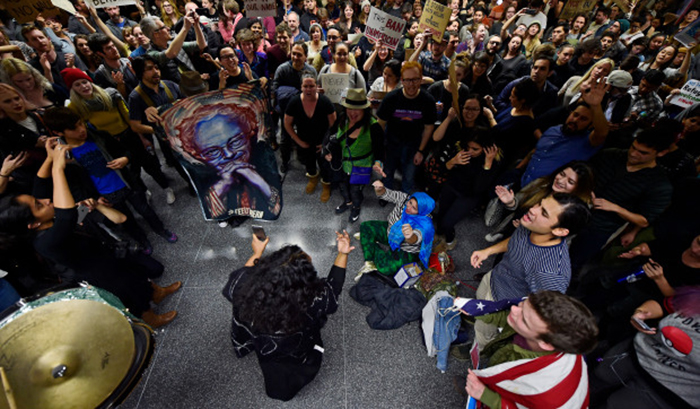First in a four-part series.
It is not uncommon to hear the most inflammatory language amongst those who are hostile to the state of Israel.
These critics are a diverse group.
They range from the loony, such as Member of Parliament George Galloway (who famously left an Oxford stage when he learned a debate participant would be Israeli, announcing, “I don’t recognize Israel, and I don’t debate Israelis”) and Presbyterian Church (USA) minister Larry Grimm (who suggested that Jews leave Israel, as America was their true promised land), to the respected, such as the European Union and academic institutions like the American Studies Assn.
Those who support these actions often describe themselves as part of the BDS movement — boycott, divest and sanction.
For many BDS supporters, the most popular description of Israel is the loaded term “apartheid state.” This is meant to evoke the illegitimate and now swept-away South African regime, where a small minority of whites brutally ruled over a large majority of blacks. They legislated their strict segregation in all walks of life, from beaches to restaurants, from professions to public transportation, and everywhere in between. They barred their social advancement and rigorously eliminated them from the political system.
Since South Africa’s apartheid regime was almost universally, and correctly, recognized as illegitimate, and boycotted and sanctioned until it disappeared, BDS advocates seem to hope that applying the same noxious label to Israel will have a similar result.
Recently I was in Israel. I tried to understand what renders it an “apartheid state.”
At Tel Aviv beaches, I saw Muslim women, covered from head to foot, swimming with Jews. In Jerusalem, I shopped in malls crowded with Arabs and Jews. In the West Bank’s Gush Etzion bloc, I shopped at a large grocery store in a shopping center where Arabs and Jews work and shop side by side. It is a stone’s throw from where the infamous kidnapping by Palestinians of three Jewish students, all of whom were subsequently murdered, occurred.
Arabs sit in the Knesset, Israel’s parliament, as well as on the Israeli Supreme Court and lower courts. They serve in the civil service. They have held various high police positions, ambassadorships, and various cabinet and lesser ministerial positions.
Israeli Arabs are full participants in Israel’s elections, sometimes voting for virulently anti-Zionist parties that nevertheless have seats in the Knesset.
(To be continued)
Mr. Smith, an attorney in Los Angeles, may be contacted at gsmith@irell.com






